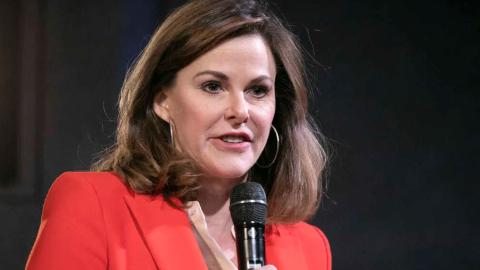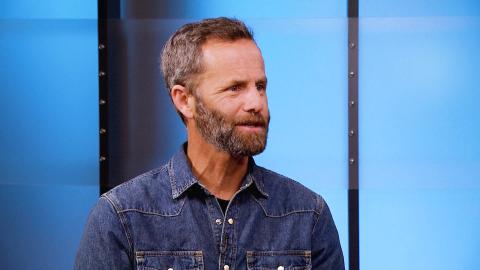'My Heart Bleeds': Youngest Schindler's List Survivor Urges Jews to Return to Israel to Escape Rising Anti-Semitism
JERUSALEM, Israel – “After all this…why? I don’t understand,” said Eva Lavi when faced with the reality that the same anti-Semitism that slaughtered members of her family and sent her to Auschwitz is on the rise again less than a century after the Holocaust.
She sat resolute and strong on a wooden chair at Yad Vashem on a rainy day in Jerusalem. Sometimes, she squeezed her eyes shut, wincing at the images of genocide that flooded her mind as she recounted her story to CBN News.
“Why [do I] talk about this? Because I wish that all the world will know about my mother. My mother saved me…She was strong as iron and because of her, I am alive."
Eva was born in Krakow, Poland and was just 2 years old when World War II began. She was 8 when it ended.
She remembers when her mother made her hide from the Nazis raiding her childhood home by clinging to a standing pipe outside in sub-zero degree weather. She remembers holding a spoonful of cyanide in her hand and her father’s voice telling her to drink it to avoid being murdered by the Nazis, and her mother’s protest at the last minute. She remembers watching her twin cousins gunned down as they ran up a hill at a labor camp. She remembers seeing the ashes of fellow Jews churning out of the chimneys of Auschwitz in black smoke.

“There was no childhood for children my age,” she said in a speech to the United Nations in 2018. “Regretfully we saw, heard and understood everything the Nazis were doing to us. Sadistic behavior with babies, old people and invalids, accompanied by laughter and satisfaction. They liked their work. They stripped the people not only of their clothes but also of their dignity.”
Eva is the youngest person to be saved from the Nazis by German industrialist Oskar Schindler. Her story is featured in Steven Spielberg’s 1993 film Schindler’s List.
Eva’s family was forced into a Krakow ghetto as soon as the Nazis took over. She was later transferred to a labor camp, and then to Auschwitz.
She recalled what it was like to feel the train stop at Auschwitz.
“There was hysteria,” she said.
By that time, many Jews had already heard about Auschwitz. It was a word synonymous with murder.
The Nazi guards forced her and others to undress and go to the showers.
“We knew what this Auschwitz [was]..to go to the bathroom…we were sure we were going to take the gas,” Eva told CBN News. “The children would say, ‘Goodbye mommy. I know I am going to die mommy.’”
Miraculously, gas did not pump through the water pipes of the showers.
“It was water. ‘We are not dead. We are alive. Wow, it can’t be.” Eva recalled saying.
Eva believes God was with her in Auschwitz and she said “God sent Schindler” to rescue her and others from certain death. When asked by Nazi guards why he needed a tiny child like Eva for heavy labor at his ammunitions factory in Czechoslovakia, Schindler said he needed her small hands to produce weapons of war.
But Eva and the other Jews on Schindler’s list never made weapons for the Nazis. Instead, she survived, moved to Israel, started a family, and served in the Israel Defense Forces.
Eva is part of a dying generation of Holocaust survivors in a world where vows of “Never again” are beginning to ring hollow for many Jews.
Just 75 years after the liberation of Auschwitz on Jan. 27, 1945, some people are forgetting the memory of the Holocaust.
A comprehensive survey released last week by the Claims Conference, a Jewish organization that negotiates compensation for victims of Nazi Germany found that most people in France did not know 6 million Jews were murdered in the Holocaust. About 45% of millennials said they were unaware that France collaborated with the Nazis and 25% said they weren't sure if they even heard about the genocide against Jews.
Researchers at Tel Aviv University reported last year that 2018 saw the largest number of Jews killed in anti-Semitic attacks in decades. They found that the biggest spike in violent acts against Jews occurred in western Europe.
“My heart bleeds,” she mournfully told CBN News.
While Israel has its own challenges, she urges other Jews to return to the land - a land where Jews have the tools to defend themselves against this age of anti-Semitism.
“I think that it will be best that they come to Israel…we have many [wars]..many of our men and boys are dead…we fight for this. We fight for our lives…I hope that perhaps they came here,” she said.




